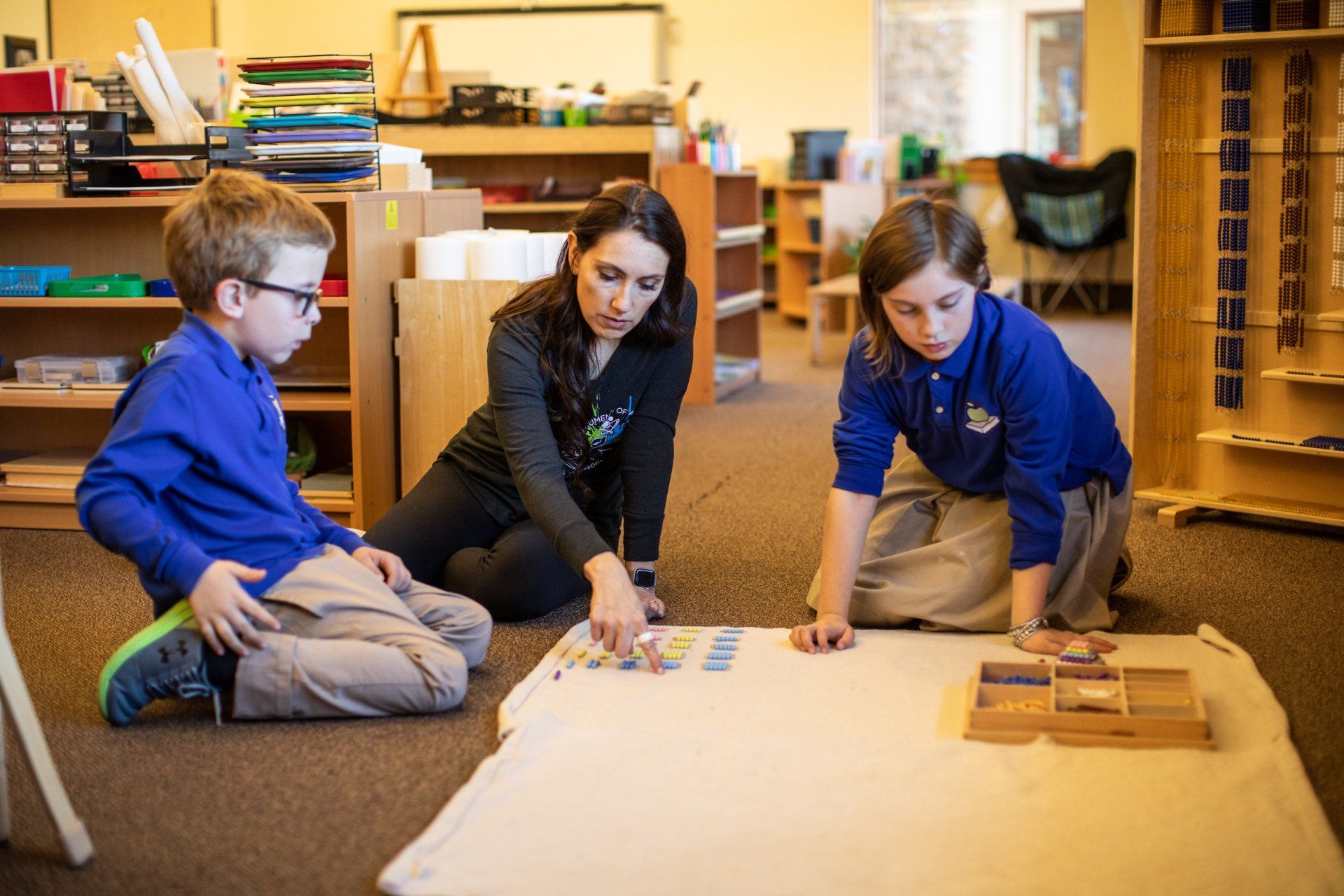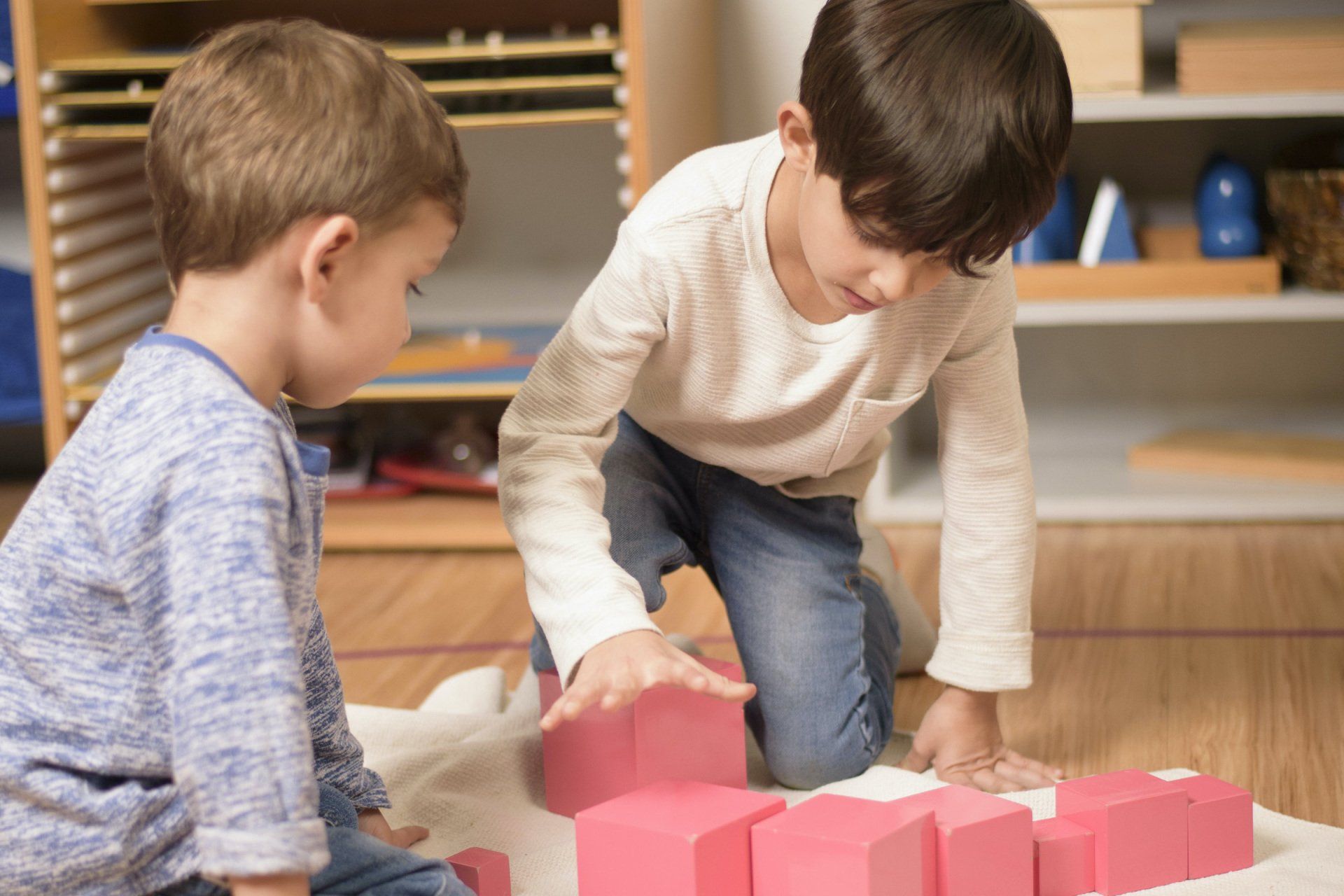Many public school systems offer kindergarten, and many parents are curious about this transitional year. Why should your child stay in Montessori for the kindergarten year?
Learning for Mastery
Montessori schools are intentionally structured utilizing a three-year cycle. There are many great benefits to this, but one of them is to provide third year students with opportunities that they will not have in other environments.
Having spent the previous two years learning a multitude of skills in their classroom, the third year is about mastery. The Montessori curriculum is a series of carefully developed lessons and materials that are meant to cycle back to a culminating experience during the final year.
All that time spent grasping knobbed cylinders, tracing metal insets, and practicing sandpaper letter formation? The kindergartner uses all that knowledge as they begin to write with paper and pencil.
The years of early mathematical preparation? Now they get to use the golden beads (or perhaps the stamp game material) to learn to add and subtract numbers into the thousands (yes, as kindergartners!).
Montessori’s early focus on teaching children sounds in lieu of letter names leads many children to begin reading by the time they are in kindergarten.
Children as Independent Leaders
Not only do guides observe children mastering these skills independently, but the children have the chance to teach to others. Educators across many settings will agree that once the student becomes the teacher, we can surmise that true mastery has been attained.
So while your kindergarten child is teaching younger children how to do something, they are showing us just how well they know how to do it. Not only that - they are gaining confidence in a truly authentic way. No one needs to tell the child how well they are doing because they feel it themselves.
When children teach children, it’s not just about knowledge being shared, but also about cultivating world citizens. Teaching each other is an act of kindness, and a way for children to practice helping others around them.
Fueling the Spark
In Montessori classrooms one of our greatest tasks is to keep the fire burning inside children’s minds. We structure our work so that children may follow their passions and learn deeply about things that matter to them. We see each child as an individual and think one-size-fits-all educational approaches tend to extinguish the joy of learning.
Instead of drilling facts into children, we place materials before them so that they may discover the truths of the world themselves. Rather than asking them all to do the same thing at the same time, we value their choices and trust their educational process. It is the guide’s job to keep them on track, but they offer children the freedom that lets them deeply explore the learning that calls to their souls.
Five Key Differences Between Montessori and Conventional Schooling
| Conventional | Montessori |
|---|---|
| Standardized testing begins at an early age. | Teachers follow the student and assess through meticulous record-keeping. |
| Children are given assigned seats that are usually arranged in small groups or rows set by the teacher | Children are free to choose their seating, as well as choosing to work individually or in small groups of their choice. |
| External rewards are used for praise, such as behavior charts, prizes, stickers, and letter grades. | Children develop a sense of internal motivation. The joy of work itself is enough to keep the child engaged. Children are offered work that is beautiful and draws their attention, so there is no need for external praise or reward. |
| The teacher is the head of the classroom and in charge of the lesson plan. | The teacher follows the student, giving lessons that the child is ready to learn. The child is the main focus in the classroom |
| Main goal is to deliver a standard-based curriculum. | Main goal is to cultivate curious and empathetic world |
Nido Montessori School
Children's Workshop Montessori School



